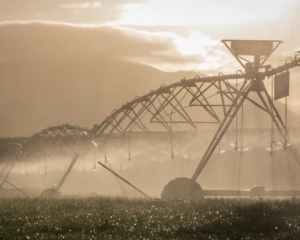South Westland farmers are feeling nervous after the Department of Conservation yesterday cancelled a river flat grazing licence at Haast after 160 years.
Doc had previously approved the grazing renewal, provided that farmer John Cowan carried out 9km of fencing along the Mount Aspiring National Park boundary.
However, director-general of conservation Lou Sanson yesterday said the department had cancelled the concession after new information showed the cattle could not be contained in the licence area.
Mr Sanson said he had "some sympathy" for Mr Cowan, but there were no practical alternatives to fencing.
The 736ha grazing licence — in the broad Haast River flats between the confluence of Roaring Billy River and Landsborough River — has been grazed continuously since the 1860s.
The licence renewal — subject to fencing — was approved in February last year. However, the cost of the fence, estimated at $50,000 and $70,000, proved too hard and Mr Cowan also expressed concern about animal welfare.
Mr Sanson assured the cancellation of the Haast licence did not set a precedent for other river flat licences in South Westland.
"Grazing licences will be treated on their own merits on a case-by-case basis, and according to agreements reached with adjoining landowners to create the Mt Aspiring National Park in 1963."
South Westland farmers are also worried about the effect of the Government’s new freshwater rules and fencing requirements which Haast farmer Kerry Eggeling warned earlier this year could "bugger" farming.
Mahitahi farmer Thomas Condon, who represents Federated Farmers and the new rural lobby group Groundswell, said he was nervous even before this decision.
"Everyone with a licence will be [nervous]," Mr Condon said.
He said grazing in the river flats was low impact, and might even enhance the land by controlling weeds and reducing the fire danger.
No fertiliser or supplementary feed was used on the river flats.
Mr Condon said many such licences went back well over a century, and had a low rate of grazing. By comparison, Doc had only been in existence 30 years.
"A lot of licences ... have been shortened down."
Former conservation minister Eugenie Sage yesterday congratulated Doc "for finally taking cattle out of the upper Haast Valley and protecting World Heritage values".
"The Nature Heritage Fund purchased land in the upper catchment for conservation and public use on condition that grazing end, and it’s finally happened," Ms Sage said.
Mr Sanson said Doc had tried to come to a workable solution to keep the cows within the licence area, while balancing the needs of the Cowan family.
"I visited the site and met with the family to seek their views, and I have some sympathy for their situation. However, independent advice has confirmed that fencing is not practical and there are no alternative practical methods to contain the stock in the licence area."
The fencing provisions were fundamental, Mr Sanson said. Without fencing, grazing was inconsistent with the Conservation Act and other statutory planning documents.
Conservationists opposed the concession. Sir Alan Mark said recently if the fence was unsustainable in terms of cost and reconstruction "then it further indicates the fallibility of the whole exercise".
Cowan supporters held a protest in Hokitika to support him in June 2018.












